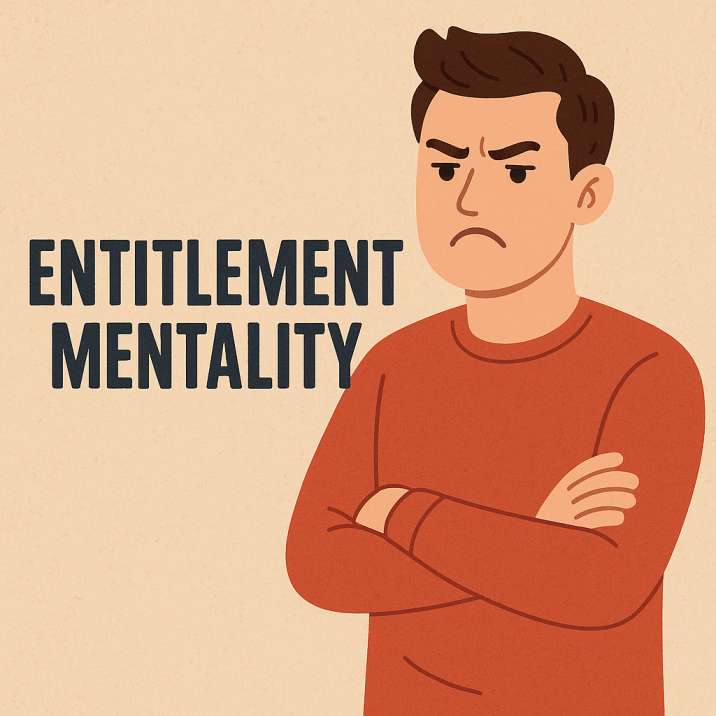Hopelessness is a state of mind where someone feels a deep sense of despair and has little or no hope for a better future or outcome. It’s a feeling of being stuck and unable to find a solution or improvement in their situation.
People experiencing hopelessness may believe that their situation is impossible to change or that they are destined to fail. These feelings may make you pull back from your life and avoid doing things you usually enjoy or being with people you love. If hopelessness becomes severe, it can lead to suicidal thoughts.
We all have our own definition of hope and hopelessness, but the emotions we experience are real and valid. Feeling hopeless may be a natural, universal response to personal and world events that impact our lives. It can also be a symptom of depression, adjustment disorders, and other mental health conditions.
Hopelessness can majorly be traced to these factors.
Life Challenges:
Experiencing significant losses, setbacks, or chronic stress can lead to feelings of hopelessness.
Financial Problems:Financial instability and the worry of not meeting basic needs can contribute to hopelessness.
Mental Health Conditions:Depression, anxiety, and other mental health disorders can significantly impact one’s ability to feel hopeful about the future.
Social Isolation:Feeling disconnected from friends and family can contribute to a sense of isolation and hopelessness.
Health Issues:Chronic illnesses or pain can make it difficult to maintain hope and optimism.
Unrealistic Expectations:Setting unrealistic goals or expectations for oneself can lead to disappointment and hopelessness.
Lack of Control:Feeling overwhelmed by change and an inability to control one’s circumstances can contribute to feelings of hopelessness.
Hopelessness can significantly impact an individual’s mental and physical well-being, potentially leading to serious consequences. It can cause individuals to feel trapped, unable to make decisions, and decrease their problem-solving skills.
Hopelessness is strongly linked to depression, anxiety, loneliness, and an increased risk of suicidal behaviour. It can also lead to social withdrawal, decreased participation in pleasurable activities, and a decline in overall life satisfaction.
Detailed look at the dangers of hopelessness.
Mental Health:Hopelessness can be a significant risk factor for depression, anxiety, and suicidal ideation. It can also lead to rumination, which exacerbates feelings of despair.
Behavioural Changes:Hopelessness can cause individuals to lose interest in previously enjoyable activities, withdraw from social interactions, and experience a lack of motivation.
Physical Health:Hopelessness can contribute to physical health problems, such as sleep disturbances and fatigue.
Cognitive Impairment:Hopelessness can negatively impact cognitive function, making it difficult to concentrate, remember things, or make decisions.
Social Isolation:Individuals experiencing hopelessness may isolate themselves from others, leading to feelings of loneliness and detachment.
Increased Risk of Hopelessness, especially when combined with other risk factors like unemployment or a history of psychiatric treatment, can increase the risk of self-harm and suicide.
However, overcoming hopelessness involves shifting from a negative mind set to one of hope and optimism.
It’s also important to acknowledge and address any underlying issues that might be contributing to the feelings of hopelessness, and to remember that these feelings are temporary.
More details of overcoming hopelessness
Self-Reflection and Awareness:Identify the root cause. What specific situations or thoughts are triggering feelings of hopelessness? Understanding the underlying factors can help address them more effectively.
Acknowledge your feelings and identify if there have been any significant life changes that might be impacting your mood.
Recognize and challenge pessimistic or negative thoughts by looking for evidence to the contrary.
Seeking Support and Connecting with Others.Reach out for support, talk to trusted friends, family members, or a mental health professional about your feelings. Sharing your experiences can help you feel less alone and provide valuable perspective. Connect with others who understand what you’re going through or who can offer encouragement and support.
If you’re struggling to manage your feelings on your own, seeking professional help can provide guidance and tools for coping.
Engaging in Positive Activities: Explore new hobbies, engage in activities that you enjoy and that bring you a sense of purpose or fulfilment. Physical activity can have a positive impact on mood and overall well-being.
Spend time in nature, being outdoors can help reduce stress and anxiety and provide a sense of peace and calm.
Spend time with people you care about and who provide support.Reminding Yourself of Hope and the Possibility of Change.
Remember that feelings can change,Hopelessness is a temporary feeling, and it can be overcome. Remind yourself that feelings change over time.
Reflect on past experiences where you have overcome challenges or made positive changes in your life. Instead of dwelling on things you cannot change, focus on what you can control and take action.
Explore your values and what is important to you, and find ways to engage in activities that give you a sense of purpose.
Hopelessness is not permanent. With support, self-care, and effort, it’s possible to regain hope and improve mental wellbeing
Written By: Airiohuodion Enaholo ThankGod (Awake Nigeria)



